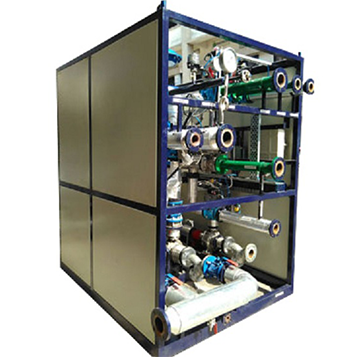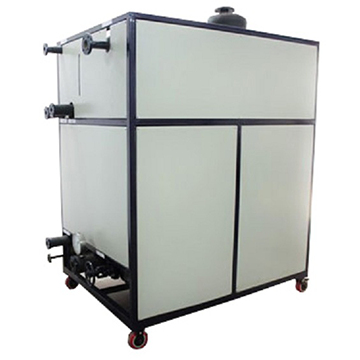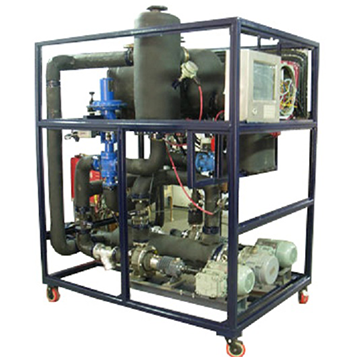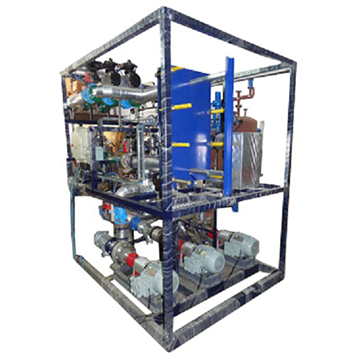Single Fluid Heating Cooling System


Traditional Heating & Cooling Systems
Active Pharmaceutical Ingredient (API) manufacturing involves batch reaction, work-up, distillation, crystallization, hydrogenation, layer separation, filtration and drying as unit processes.
Again, batch reaction involves heating and cooling stages ranging from -50°C to +250°C.
Traditionally, this was being done with multiple utilities such as chilled brine, chilled water, cooling water, hot water, low pressure steam, high pressure steam, thermic fluid etc.
Limitations
- Different heat transfer fluids (HTFs) may require separate coils, heating and cooling jacket zones or external heat exchangers.
- Time consuming changeover of HTFs and associated risks of human error.
- Cross contamination of HTFs.
- Multiple utilities can corrode the reactor jacket.
- Condensate recovery is not feasible.
- Inefficient management of HTFs leading to inaccurate temperature control.
- Process parameter deviations adversely affect product quality.
- Complicated mechanical design, and Increases capital/maintenance costs.
Solution
Single fluid heating cooling systems (SFHC) / Temperature Control Unit (TCU) are coming-up as an ideal solution to overcome most of the limitations with traditional multiutility based heat transfer and control system. where high accuracy and wide temperature ranges are critical for the development of new compounds and API’s.
How it Works?
Single fluid heating cooling system is normally connected to a single reactor, where the Temperature of the system is varied as per the process requirement, Thus maintaining the constant temperature difference between the process and fluid temperature.
This gives precise control over heating and cooling cycle. Thus, not only the temperature is controlled as a critical process parameter but also the heating-and-cooling time is controlled as a critical parameter. This results in batch-to-batch consistency and higher yield.
Feature of Single Fluid Heating Cooling System
Advantage
- Accurate temperature control to +/-1°C without risk to your reactor.
- Rapid heating and chilling profiles can be designed, reducing batch times.
- Repeatability and accurate recordable.
- Measurement for meeting FDA requirements.
- Programmable heating and cooling ramps for accurate unsupervised operations.
- No switching between jacket service fluids, preventing cross contamination, corrosion or thermal shocks to the vessel.
- Smooth, continuous temperature control, with no gaps because there is no fluid changeovers.
- No interruption of process and no hot spots, resulting in higher product yields and quality. Off batches are minimized, if not eliminated.
- Savings on expensive raw materials can be made because the yield is maximized without adding excess reactions.
- Suitable for the very cold operating temperatures required by today’s new chemical formulae and reactions.
- Fully automatic capability, hence less manpower required.
Usage
- SFHC / TCU finds its purpose in various temperature based applications like,
- Crystallization Reactions – For better productivity
- Non-Aqueous Reactions: Critical application where Aqueous utilities are to be not used for heating/cooling, which leads to hazardous conditions (e.g. reactions which involve materials like Sodium) – For Safety
- Metal Reactions – For better batch-to-batch repeatability
Why Us?
Related Images




